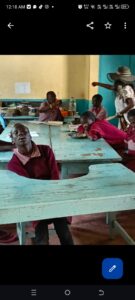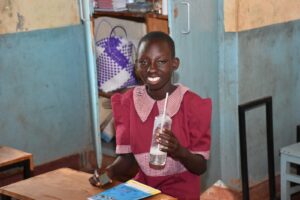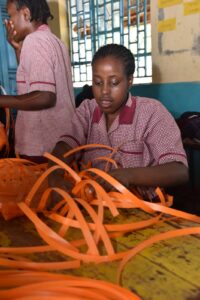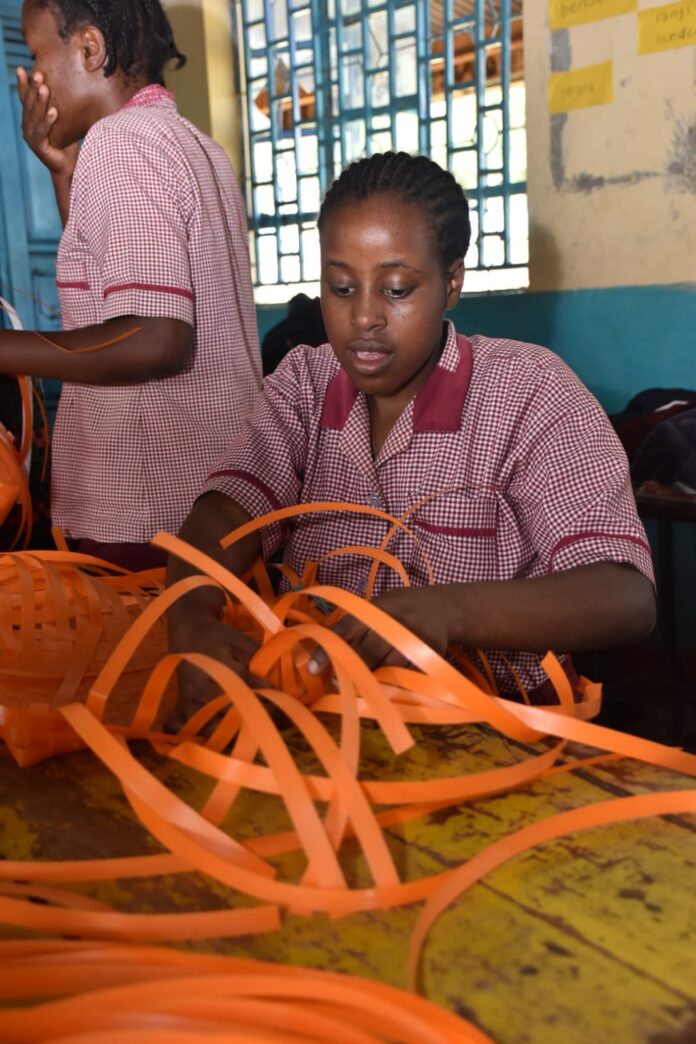By Lydia Wanaswa
Girls who are mentally challenged have a big problem in managing their menstruation hygienically and with dignity as they are not always capable of understanding exactly what menstruation is or able to manage the hygiene practices properly and independently, they might have a big challenge of communicating what they are feeling or experiencing and this might aggravate the existing mental issue.
These girls face prejudice for being female and having a disability.
Menstrual health is pertinent but also challenging in navigating the emotional fluctuations that come with menstruation, they need strong support systems involving the care givers and family members to help in management of menstrual hygiene, some of the benefits that come with menstrual hygiene is to prevent infections, improve reproductive health, reducing discomfort, stress and stigma. Insufficient menstrual hygiene can lead to reproductive and urinary tract infections.

St Teresa’s Special school for the mentally challenged in Webuye East Constituency, Bungoma County is a school for learners who cannot perform like the normal learners intellectually, they have low performing ability compared to the regular learners, once a leaner has been identified as having disability intellectually or mentally they are brought at St Teresa’s school with a referral letter from Education Assessment and Resource Centre before they join the institution, a doctor must confirm that the leaner is mentally challenged.
According to Patricia Ogolla a teacher at St Teresa’s, as far as menstrual hygiene is concerned it’s an arduous task to handle the girls as some of them totally don’t understand and can’t communicate verbally, this compels the care givers to literally do everything for them in terms of changing of sanitary towels ,showering, clothing and any other things but for those with the ability to understand teachers and matrons are always present to guide them on how to use sanitary pads , she has implored the government to double or triple their support of supplying sanitary towels in special schools compared to regular ones adding that cost of sanitary towels is difficult for parents as most of them are struggling financially.

“For the girls, we have those who are able to understand maturity in terms of human maturity but we have those who are unable to, so we take them through all the process in terms of adolescence experiences and how to cope up with them,” she said
She noted that just like any human being, mentally handicapped girls need guidance and advise as they also experience all stages of growth from childhood to adulthood adding that when it comes to adulthood they are advised take precautions.
“They can always produce like any other but we advise them to do it at the right time,” she said.
However, Mrs. Ogolla has called upon the society to create a supportive environment and embrace these young souls so that they can feel like part and parcel of the society and stop referring to them as ‘mad’ and advised parents to accept their children for who they are pointing out that they are not a mistake but a gift from God, she also added that these girls need extra care, patience and commitment from care givers especially when it comes to management of menstrual health.
“For the society these children are not mad it’s just that they can’t function well academically like the other children but can undertake any other parts of life activities,” she noted
The school deputy Mr. Charles Wekesa revealed that the school has taken a stage based path way, first level is called foundational level where the learner is introduced to school activities like mobility, toileting, cleanliness and how to settle in class, from there the learner moves to an intermediate class which prepares them for prevocational skills here they are subjected to Kenya Intermediate Learner Examination Assessment ‘KLEA’ where they are awarded
by the Kenya National Examinations Council. ‘KNEC’
From there they proceed to prevocational class where learners are taught to be self-reliant and skills that can enable them to survive on their own when in their communities and make things like baskets, key holders, necklaces, earrings, mats and even bangles from there they move to vocational class which is the final class.

“These products when well done, we sell them, we aim at having a completely finished product,” noted the school deputy
Wekesa also highlighted that once the learner has satisfied the teachers that they have acquired necessary skills in bead work, tailoring, carpentry, metal work, they are graduated into the community where they go home make these things and earn a living out of it.



